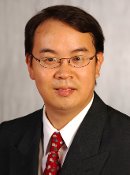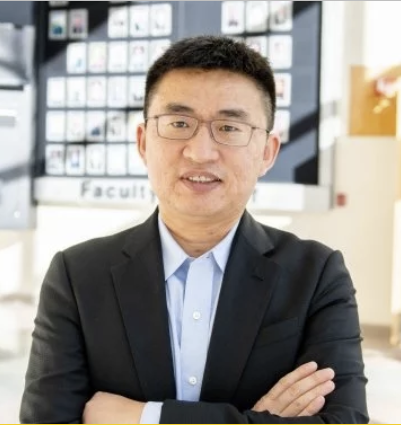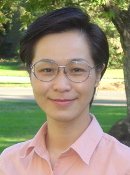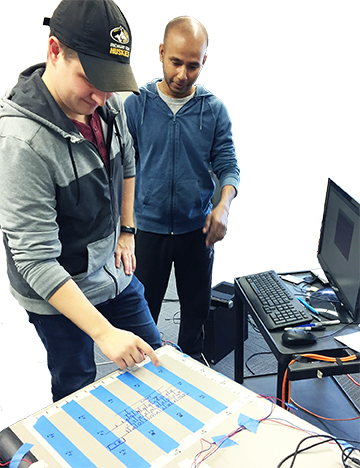 Tim Havens (CS/ICC) coauthored the article, “Enabling Explainable Fusion in Deep Learning with Fuzzy Integral Neural Networks,” which was accepted for publication in the journal IEEE Transactions on Fuzzy Systems.
Tim Havens (CS/ICC) coauthored the article, “Enabling Explainable Fusion in Deep Learning with Fuzzy Integral Neural Networks,” which was accepted for publication in the journal IEEE Transactions on Fuzzy Systems.
Citation: M.A. Islam, D.T. Anderson, A. Pinar, T.C. Havens, G. Scott, and J.M. Keller. Enabling explainable fusion in deep learning with fuzzy integral neural networks. Accepted, IEEE Trans. Fuzzy Systems.
Abstract: Information fusion is an essential part of numerous engineering systems and biological functions, e.g., human cognition. Fusion occurs at many levels, ranging from the low-level combination of signals to the high-level aggregation of heterogeneous decision-making processes. While the last decade has witnessed an explosion of research in deep learning, fusion in neural networks has not observed the same revolution. Specifically, most neural fusion approaches are ad hoc, are not understood, are distributed versus localized, and/or explainability is low (if present at all). Herein, we prove that the fuzzy Choquet integral (ChI), a powerful nonlinear aggregation function, can be represented as a multi-layer network, referred to hereafter as ChIMP. We also put forth an improved ChIMP (iChIMP) that leads to a stochastic gradient descent-based optimization in light of the exponential number of ChI inequality constraints. An additional benefit of ChIMP/iChIMP is that it enables eXplainable AI (XAI). Synthetic validation experiments are provided and iChIMP is applied to the fusion of a set of heterogeneous architecture deep models in remote sensing. We show an improvement in model accuracy and our previously established XAI indices shed light on the quality of our data, model, and its decisions.
 The Office of the Provost and Senior Vice President for Academic Affairs has announced that Dr. Timothy Schulz (DataS), professor of Electrical and Computer Engineering, has been named a 2019 University Professor.
The Office of the Provost and Senior Vice President for Academic Affairs has announced that Dr. Timothy Schulz (DataS), professor of Electrical and Computer Engineering, has been named a 2019 University Professor. Dr. Soner Onder (CS, SAS) will present an invited talk titled “Program semantics meets architecture: What if we did not have branches?” at a workshop organized in honor of the 80th birthday of Prof. Yale Patt of University of Texas, Austin. Prof. Patt is a prominent researcher with decades of accomplishments in Computer Architecture.
Dr. Soner Onder (CS, SAS) will present an invited talk titled “Program semantics meets architecture: What if we did not have branches?” at a workshop organized in honor of the 80th birthday of Prof. Yale Patt of University of Texas, Austin. Prof. Patt is a prominent researcher with decades of accomplishments in Computer Architecture. Yu Cai (TTEC/ICC) is Principal Investigator on a project that has received a $82,416 Other Sponsored Activities Grant from the National Security Agency/National Science Foundation. The one-year project is titled, “Innovation GenCyber Learning Experience for High School Students Through Storytelling + Teaching + Gaming + Doing.” Bo Chen (SCS), Guy Hembroff (TTEC), and Tim Van Wagner (TTEC), are co-PIs.
Yu Cai (TTEC/ICC) is Principal Investigator on a project that has received a $82,416 Other Sponsored Activities Grant from the National Security Agency/National Science Foundation. The one-year project is titled, “Innovation GenCyber Learning Experience for High School Students Through Storytelling + Teaching + Gaming + Doing.” Bo Chen (SCS), Guy Hembroff (TTEC), and Tim Van Wagner (TTEC), are co-PIs. Zhen Liu (CEE/MTTI) is Principal Investigator on a project that has received a $90,418 contract with Michigan Department of Transportation. This project is titled “Improved Calculation of Scour Potential in Cohesive Soils and Scour Susceptible Rock.” Brian Barkdoll (CEE) and Stan Vitton (CEE) are co-PI’s on this 14-month project.
Zhen Liu (CEE/MTTI) is Principal Investigator on a project that has received a $90,418 contract with Michigan Department of Transportation. This project is titled “Improved Calculation of Scour Potential in Cohesive Soils and Scour Susceptible Rock.” Brian Barkdoll (CEE) and Stan Vitton (CEE) are co-PI’s on this 14-month project. Michigan Tech will offer two non-residential, week-long GenCyber camps this summer. The first camp is for local middle school and high school students (grades 7-12) and will be held the week of June 17. The second camp is for local K-12 STEM teachers and will be held the week of August 12.
Michigan Tech will offer two non-residential, week-long GenCyber camps this summer. The first camp is for local middle school and high school students (grades 7-12) and will be held the week of June 17. The second camp is for local K-12 STEM teachers and will be held the week of August 12. Kuilin Zhang’s (CPS/CEE) research on transportation planners was the subject of a story covered in Auto World News titled, “Filling in the gaps of connected car data helps transportation planners,” which was published on May 6, 2019.
Kuilin Zhang’s (CPS/CEE) research on transportation planners was the subject of a story covered in Auto World News titled, “Filling in the gaps of connected car data helps transportation planners,” which was published on May 6, 2019. Graduate students Chong Cao and Joe Oncken work with researcher Bo Chen (CPS/ME-EM) in the Intelligent Mechatronics and Embedded Systems lab. In the lab, they develop Simulink models for smart city technology — and show how the models shift into real-life testing.
Graduate students Chong Cao and Joe Oncken work with researcher Bo Chen (CPS/ME-EM) in the Intelligent Mechatronics and Embedded Systems lab. In the lab, they develop Simulink models for smart city technology — and show how the models shift into real-life testing. By Karen Johnson, ICC Communications Director
By Karen Johnson, ICC Communications Director